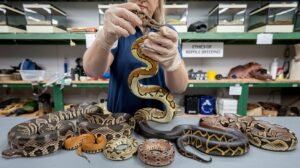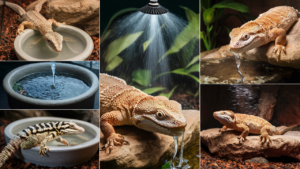In this article, we delve into the fascinating world of pet care, covering essential topics like dog breed selection, understanding cat play behaviors, knowing ferret dietary needs, and ensuring optimal hamster health. Each section will provide insights and practical tips to help pet owners create a nurturing and safe environment for their beloved companions.
Choosing the Perfect Dog Breed
Choosing the Perfect Dog Breed: Selecting the right dog breed requires careful consideration of size, temperament, and energy levels, ensuring compatibility with your lifestyle. Assess individual needs through research and seek responsible breeders or consider adoption for a better match. Popular breeds like Labradors, Beagles, and Bulldogs offer distinct characteristics, helping potential owners make informed choices for their companionship needs.
The Playful Nature of Cats
The playful nature of cats is deeply rooted in their instincts, as play closely mimics hunting behavior. Engaging in play not only sharpens their predatory skills but also promotes physical health and socialization. Kittens, in particular, develop their hunting techniques through chasing and pouncing on objects, setting the foundation for fully-grown cats.
Interactive play is essential for maintaining both mental and physical well-being. Owners should provide a variety of toys, such as feather wands, laser pointers, and plush mice, to stimulate their cats. Rotating toys periodically keeps the play experience fresh and exciting.
In addition to solo play, social interactions with humans and other pets can enrich a cat’s life. While engaging in interactive play sessions, owners can use techniques such as imitation or variation in movement to keep their cats enthralled. The best activities should mimic prey behavior, encouraging jumping, stalking, and pouncing.
Play behavior develops rapidly in kittens, typically emerging around three weeks of age. Early exposure to a variety of toys and play scenarios can help nurture confident and skillful hunters. It’s vital for pet owners to observe their cats, recognizing their preferences and tailoring playtime to individual interests.
Encouraging exploration and problem-solving through toys that dispense treats or require manipulation further stimulates a cat’s intellect. Overall, a commitment to regular, interactive playtime fosters a happy, healthy lifestyle for feline companions.
Feeding Ferrets for Optimal Health
Feeding ferrets for optimal health requires a dedicated focus on their unique dietary needs. These playful creatures thrive on a **high-protein** and **low-carbohydrate diet** to support their energetic lifestyles. Many commercial ferret foods are available that meet these requirements, often formulated specifically for their needs. However, owners must be cautious of common dietary mistakes, such as feeding them cat or dog food, which can be inadequate in nutrition.
When formulating a meal plan, prioritize **premium ferret kibbles** that contain meat as the primary ingredient, along with **ferret-specific treats** that can provide additional variety. Always avoid plant-based foods or excessive grains that could lead to health issues. It is advisable to introduce new foods gradually, monitoring for adverse reactions.
Moreover, consider the potential benefits of supplements, such as **omega fatty acids** for skin health and **probiotics** for digestive support. Regular hydration is crucial; provide fresh water at all times and consider appropriate water bottles designed for ferrets to encourage proper drinking habits. A nutrient-rich diet coupled with proper hydration will significantly enhance the overall health and vitality of your ferret.
Caring for Hamsters’ Health
Caring for hamsters requires attention to habitat, diet, and health care. To maintain a healthy environment, clean cages regularly, provide fresh bedding, and ensure proper ventilation. A balanced diet should include high-quality pellets, fresh fruits, and vegetables, avoiding processed foods and sugary treats.
Common health issues in hamsters include wet tail, respiratory problems, and obesity. Regular veterinary check-ups are essential to catch issues early. Watch for signs of illness such as lethargy, changes in appetite, or unusual behavior. Preventive care measures like dental care and exercise can significantly enhance a hamster’s quality of life.
New hamster owners should follow this checklist for a healthy pet:
– Regularly clean the cage
– Provide fresh food and water
– Monitor weight and activity levels
– Schedule veterinary appointments
– Ensure access to chew toys
– Observe for signs of illness
By adhering to these best practices, you create a nurturing environment, promoting a happy and healthy life for your furry friend.
Conclusions
In summary, selecting the right dog breed, understanding how cats play, catering to ferrets’ dietary requirements, and ensuring hamsters’ well-being are crucial aspects of responsible pet ownership. By following the insights shared, pet owners can enhance their pets’ lives and strengthen the bond between them.



